
Anxiety can be beyond frustrating. Your pulse races and your heart pounds, making it difficult to concentrate on what needs to be done. Anxiety disorders can make the problem even worse, as you’re dealing with strong reactions that seem to come out of nowhere. While there is no single cure for anxiety, there are strategies to make things better. Turning to foods that help with anxiety should be one part of your solution.
After all, food is more than just fuel. It contains many vital nutrients, chemicals, and compounds, with have roles throughout our bodies. To be healthy, we need a varied diet that provides plenty of nutrients and isn’t excessive in any area.
Having a balanced diet is crucial to managing anxiety, but that isn’t the whole story. Some foods can help with anxiety more directly. The reasons for their effects vary. For example, some provide omega-3 fatty acids, while others can boost serotonin, which has a calming effect.
Don’t expect these foods to have radical impacts on your anxiety overnight. The foods and approaches to treat anxiety tend to be subtle and cumulative. You won’t find one single thing that removes your anxiety, and you’ll still have bad days. But, focusing on good food and habits can make a massive difference in the long-term.
Plus, the foods on this list tend to be healthy anyway. This means they can have many other positive effects on health, like helping kids to grow taller.
Foods For Anxiety
- Fatty Fish
- Berries
- Turkey
- Oatmeal
- Chia Seeds
- Dark Chocolate
- Seafood
- Eggs
- Yogurt
- Whole Grain Foods
- Brazil Nuts
- Other Nuts
- Dark Leafy Greens
- Avocados
- Fermented Foods
- Pumpkin Seeds
- Asparagus
- Meat
- Dairy Products
- Beans
- Whole Foods
Fatty Fish

Who can deny that fish is healthy? It’s a source of omega-3 fatty acids, which have been linked to an extensive range of benefits. Most people already know about the link between omega-3 fatty acids and depression, but the healthy fats are thought to help with anxiety as well.
In particular, the fats can help to lower inflammation and help to make the brain more resilient. This means that you can respond to stressors better and are less likely to experience anxiety symptoms.
Fatty fish is also a nutrient-dense food that is protein-rich and releases energy slowly. Those features are all critical. The nutrients make sure your body has all the base materials it needs, while the slow release of energy means that you’re not getting blood sugar spikes.
To get the most benefits, you’ll need to choose the type of fish carefully. Salmon is always fantastic, as it has plenty of omega-3 fatty acids and is relatively low in mercury. You can turn to tuna too. Just watch how often you eat tuna, as it is contains more mercury than salmon.
Sardines are another interesting choice. They offer plenty of omega-3 and are near the bottom of the food chain, which helps to keep the mercury content in the fish low.
There’s another advantage too. Fatty fish are one of the few food sources of vitamin D. Low levels of vitamin D have been linked to depression and anxiety, so it’s crucial that you get your levels up. You won’t ever get enough vitamin D from food (you’ll need supplements or time in the sun for the rest), but food sources of vitamin D are still helpful.
While white fish is appealing as a low-calorie source of protein, it isn’t nearly as good for omega-3 fatty acids. This could make it less effective for anxiety too.
Berries

All berries are effective sources of antioxidants and phytochemicals – and blueberries stand out above the rest. They’ve been studied time and time again, with researchers finding links to numerous health benefits.
The antioxidants alone would be a reason to eat blueberries. After all, there are thoughts that antioxidant status could play a role in anxiety. Blueberries are also one of the best sources of antioxidants, so eating them regularly is a logical decision.
Of course, you can branch out to other berries too. They all contain some antioxidants, along with vitamin C and other nutrients.
Berries are one of the best types of fruit to focus on anyway. Not only are they high in powerful phytochemicals, but they’re also a good source of fiber. Berries even make their way onto low carb and keto diets, as they contain less sugar per serving than many other types of fruit and plenty of fiber.
Turkey

You’ll often see turkey on lists of foods that help you sleep, so it’s not surprising that turkey helps with anxiety too. Much of the effect comes from the amino acid tryptophan. Our bodies can convert this to serotonin, which has a relaxing effect.
Besides that, turkey is a good source of nutrients and protein. It can be an easy way to satisfy hunger cravings before bed. Those advantages can’t be overlooked, as keeping your blood sugar balanced and getting enough nutrients are important long-term ways to manage anxiety.
Oatmeal

Despite their differences, oatmeal and turkey have some of the same advantages. They’re both filling foods that can help increase serotonin levels.
Don’t let the carbs in oatmeal put you off. These are complex carbs, which play a key role in stress management and serotonin production.
Plus, complex carbs release their energy slowly. This means that they don’t give you a blood sugar spike. You get a more sustainable release of energy instead and a prolonged calming effect.
Oatmeal can be excellent first thing in the morning, as you’re getting a satisfying start to the day. A protein-rich breakfast helps you avoid those blood sugar spikes and the anxiety rush that goes with them. Try making your oats even more filling by mixing in nuts or chia seeds. You can even make savory oats and serve a fried egg on top.
Chia Seeds

Don’t discount chia seeds. The seeds might be tiny but they also contain an incredible amount of nutrients. They’re an easy way to increase your fiber intake too, especially as you can scatter them on top of a meal.
Why not take things a step further and make a chia seed pudding? That dish can be as simple as chia seeds, liquid, and some type of flavoring.
Chia seeds have another advantage too. They provide plant-based omega-3 fatty acids. This makes them fantastic for your brain in many areas and is another way that the seeds could help with anxiety.
Dark Chocolate

These days most of us know that dark chocolate is more than just a treat food. It is rich in plant-based compounds, including flavonols. These are powerful antioxidants that can help in many ways.
For one thing, flavonols can improve the blood flow to your brain, helping it to function better. Improved blood flow also promotes resilience. This means you’re better at adapting to stressful situations. When this happens, you become less reactive to everything that is going on around you.
Then, of course, there’s the taste of dark chocolate. Many of us have seen chocolate as a stress-relief food for years. This association alone can make dark chocolate effective as a way to reduce anxiety.
The best choice for your health is dark chocolate with a high cocoa percentage (at least 70%, ideally 80% or above) that has few additives and keeps the sugar content low. There are plenty of reliable brands out there, so keep looking until you find one.
Seafood

We mentioned fatty fish already, but this isn’t your only seafood option. You can also turn to various types of shellfish. Even seaweed and algal oil have advantages.
Most of these foods are easy ways to increase your omega-3 fatty acid intake. They all offer other nutrients too. For example, shellfish can be a fantastic source of zinc, which is a critical mineral for anyone with anxiety.
Eggs

Eggs were once seen as very bad for you. However, these days it’s hard to find a healthy food list that doesn’t feature eggs.
And honestly, we could go on and on about why eggs are so important. One reason is simply their nutrient profile. Eggs are a fantastic overall source of nutrients. They’re also fast and easy to prepare. You can cook eggs in a matter of minutes. They complement plenty of other foods, so it’s easy to create a full meal.
You also get vitamin D from egg yolks. As we mentioned earlier, food sources of vitamin D are rare, so it’s worth enjoying the ones you can.
Let’s not forget about tryptophan either. This is an amino acid and you get a decent amount in egg yolks. Our bodies can convert this into the neurotransmitter serotonin. Serotonin then has various roles, including mood regulation and helping with sleep.
Foods that increase serotonin can have calming properties too, making them perfect for anxiety sufferers.
Yogurt

Where to begin with yogurt? For one thing, it’s a good source of nutrients from dairy, including calcium. There’s a decent amount of protein too. This makes it a filling choice and reduces any spikes in your blood sugar.
Yogurt can also be a source of probiotics. These are healthy microbes that can improve the balance of bacteria in your gut. Gut bacteria is thought to have many benefits, which includes helping with anxiety and depression.
The trick is to choose your yogurt well. There are many products out there and many of them aren’t so flash. Be careful with any brands that rely heavily on additives, flavorings, or sugar.
You should also make sure that your yogurt contains the desirable bacteria. This won’t always be the case, as pasteurization can kill the microbes. Look for product labels that say ‘contains live cultures’ or something similar.
Whole Grain Foods

Don’t let concern about carbs fool you; carbs aren’t all created equal. Some fall into the category of complex carbs and are digested slowly. They’re useful for anxiety, as they can help to stabilize blood sugar levels.
Whole grain foods also contain prebiotics. Prebiotics act as the food source for probiotics, so you need probiotics and prebiotics to have a healthy gut. If you’re lacking in prebiotics, then all the probiotics in the world won’t do you much good.
Plus, having a healthy diet that includes fruits and vegetables, legumes, and whole grains, is often linked to improved overall health. That includes physical health and mental health.
To get the most benefits, you’ll need to choose your foods carefully. Whenever possible, look for whole grain products where the grain is still intact. This isn’t always the case. Many products grind the grain to create flour instead. Doing so means your body processes the grains faster and you can still get a blood sugar spike.
The healthiest products will often come from artisan suppliers, especially those that focus on quality. If you can’t find anything decent in the store, why not make your own? This way you get complete control over the ingredients in your food and can be certain that there are no hidden surprises.
Brazil Nuts

Brazil nuts are one of the most potent sources of selenium out there. You only need a few nuts to get your daily intake of the mineral.
Selenium is most useful because it can decrease inflammation. People with an anxiety condition often have high levels of inflammation. Lowering this inflammation could also lower some anxiety symptoms.
Selenium could be even more powerful if you’re deficient in the mineral. But, as is often the case, it’s better to get selenium through your food than supplementing it. There’s an upper limit to the amount of selenium that’s good for you. It’s easy to go over this with supplements.
Besides, whole foods offer a wider variety of compounds than you’ll find in supplements. For example, Brazil nuts are also a source of antioxidants. Vitamin E and selenium are the most notable ones.
Other Nuts

Brazil nuts might be powerful, but they’re not the only nuts that can help with your anxiety. All nuts are helpful to some extent, as they’re a source of protein and release energy slowly. This feature is ideal for keeping your blood sugar stable between meals.
Some nuts have additional benefits. Cashews, for example, are high in zinc. Zinc rich foods can directly help with anxiety symptoms, especially if you are deficient in zinc.
Walnuts and pecans are both appealing too. They’re both key sources of antioxidants. Plus, walnuts are often linked to improved brain health, memory, and even cognition.
Don’t forget about almonds either. These are sometimes seen as the healthiest type of nut. Almonds are useful sources of B vitamins and vitamin E too, which all have anti-anxiety properties.
Dark Leafy Greens

Dark leafy greens, including spinach, kale, and Swiss chard, are well-known for their nutritional profile. They’re often recommended as powerful ways to improve your health and even your cognition.
It’s not surprising that the greens have been linked to anxiety reduction too. Magnesium might be one reason for this effect, although the results of research are mixed. Even if this isn’t the case, the wide range of nutrients and phytochemicals in dark leafy greens can only be good for you.
There’s another advantage too – it’s very easy to get leafy greens in your diet. They can be used as an ingredient in countless meals, mixed into smoothies, or used as part of vegetable juice.
Avocados

Avocados are more than just a trending and delicious food. They’re also a source of healthy fats and B vitamins. Plus, deficiencies in B vitamins have been linked to anxiety. This link could mean that foods rich in B vitamins are able to resolve their anxiety entirely for some people. For others, foods like avocado could help reduce symptoms.
Avocados are also surprisingly versatile. You can use them to make many delicious dishes. Try baking an egg in the hole of an avocado to give yourself a healthy breakfast that relies on two anti-anxiety foods.
Fermented Foods

There may be a link between probiotics and anxiety. As you’re probably aware, the term probiotics refers to healthy microbes. You can find these in many types of fermented foods and in probiotic supplements.
Fermented foods may be even more helpful than probiotic supplements, as you’re not just getting healthy bacteria, You’re also getting all of the beneficial nutrients from the food.
There are plenty of different fermented foods (and drinks!) to try, including popular options like yogurt, kombucha, kefir, pickled vegetables, and kimchi. It’s often best to focus on a variety of types, as each one will have a different balance of bacteria and nutrients.
The significance of probiotics comes from the idea of gut health. Basically, we have a host of beneficial bacteria in our gut that influence many systems in our body. A good balance of bacteria could improve health in many ways, which includes helping with mental health, including areas like depression and anxiety.
There’s still much to learn about the link between gut health and anxiety. Some types of bacteria may be more helpful than others, and any effects will be influenced by your current balance of gut bacteria. Still, fermented foods provide plenty of nutrients and many taste delicious too, so they’re certainly worth trying.
Pumpkin Seeds

Most seeds will provide some benefits for anxiety. They’re all full of nutrients and are useful sources of protein.
Pumpkin seeds are better than most, as they provide a decent amount of potassium and zinc. These two nutrients have both been linked to decreased anxiety.
Besides, what could be simplier than grabbing a handful or two of pumpkin seeds and eating them on the go?
Asparagus

While all vegetables are excellent for your health, some are more notable for anxiety than others. Asparagus is an especially interesting option and has a long history in traditional medicine.
While the evidence is limited, one study suggests that an extract from asparagus stems could have anti-anxiety functions. That effect could mean that asparagus itself has similar advantages.
Meat

With all the controversy surrounding meat, recommending it as a way to treat anxiety might seem strange. Yet, meat does still have many advantages.
Most importantly, meat is a complete source of protein. It gives you all the amino acids that your body needs, some of which influence neurotransmitter levels in your body and can help you to feel better.
Meat is also a dense source of nutrients. It even offers some relatively uncommon nutrients, like vitamin B12. This nutrient density is very relevant to health, giving your body what it needs for optimum function.
Lean meat is often considered the healthiest, as it contains less fat and is lower in calories than fatty cuts of meat. Try to avoid processed meat, including sausages and some lunch meat products. Processed meat may increase cancer risk and isn’t as healthy as the less processed options.
Dairy Products

Like meat, dairy is controversial. Dairy has plenty going for it, including the nutrients and protein that it contains. It’s another high-quality protein source, so you’re getting essential amino acids, just like with meat.
The first concern with dairy is the lactose. If you’re lactose intolerent, then dairy won’t be a healthy choice. It’s likely to make you sick. You can get around this with low lactose dairy products, including options like lactose free milk. But, there aren’t low lactose options for all dairy products.
The other issue is inflammation. Dairy is sometimes thought to promote inflammation and inflammation could contribute to anxiety. However, evidence for the link between dairy, inflammation, and anxiety is limited – and might not apply to everyone anyway.
If you’re worried about dairy and inflammation, try cutting dairy out entirely for a while and then re-introducing it. This should give you a clear indication of how your body reacts to dairy.
Despite these potential issues, many people eat dairy regularly and have no problems with it. Plus, the protein and nutrients present can truly help with anxiety.
Beans

Legumes are sometimes controversial. One reason is the presence of antinutrients. These can mean you absorb fewer nutrients than you would otherwise.
But, antinutrients or not, you don’t lose nutrients by eating beans. There’s still a net gain. It’s also clear that regularly eating beans (and other legumes) is associated with many health benefits. Beans are also a surprisingly good source of antioxidants and other plant-based chemicals.
Beans also shine because they’re an inexpensive plant-based source of protein. They can be more affordable than meat and easier to use too. The biggest limitation is that most beans should be soaked before use. Still, doing that just requires a little planning. You can even skip the soaking step if you’re using beans from a can – just make sure to rinse them first.
There’s no single best type of bean to eat. It’s much better to focus on a wide variety, including black beans, red kidney beans, pinto beans, and many others. This way you’re getting a good balance of phytonutrients.
Whole Foods

We’ve highlighted many specific foods on this list, including berries, avocados, fatty fish, dark leafy greens, and many more. These foods all have their advantages, but you don’t just need to focus on them.
Following a whole food diet is one of the best things you can do for anxiety. This includes focusing on foods like fruit and vegetables, meat, vegan sources of protein, and whole grains. Cut down on processed foods as much as you can.
When it comes to fruit and vegetables, look for a wide range of colors and types. Many of the pigment molecules in these foods can have direct impacts on your health.
Be particularly wary of simple carbs, like those in white bread, sugary foods, and many processed products. While whole grains can be healthy, simple carbs are quickly broken down by your body. This leads to blood sugar spikes that can make anxiety symptoms seem much worse.
Similarly, it’s often best to eat regularly and have healthy snacks rather than skipping meals. Eating healthy food regularly helps to stabilize your blood sugar levels.

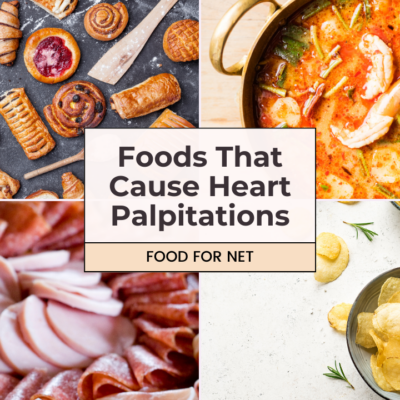
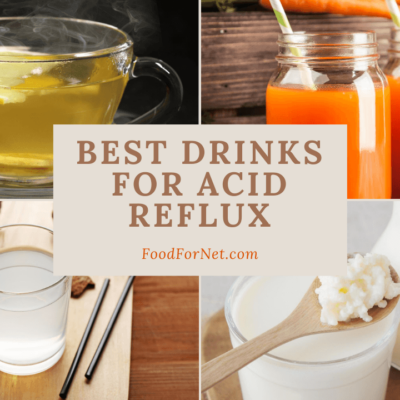
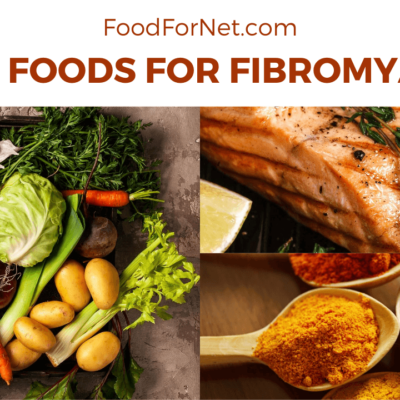

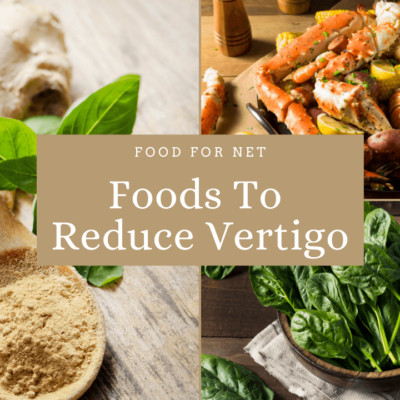
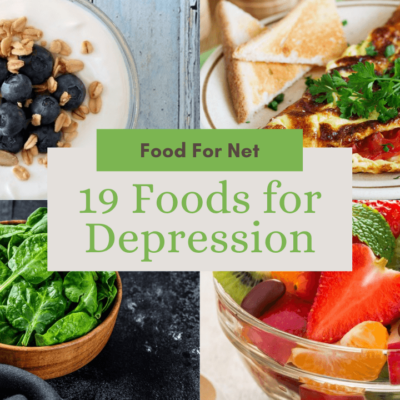
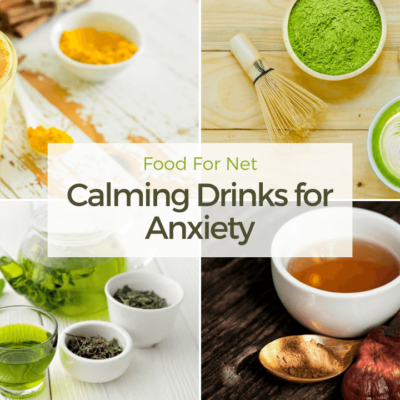
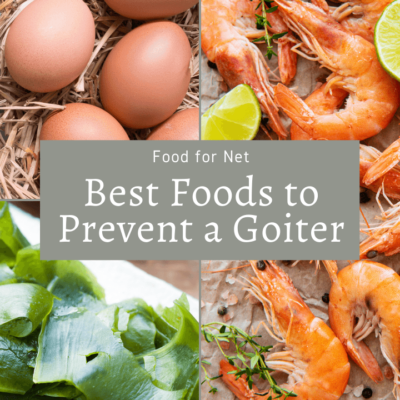
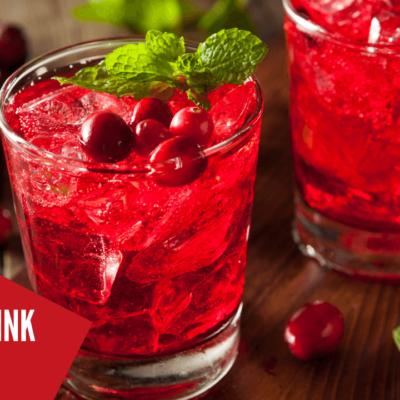


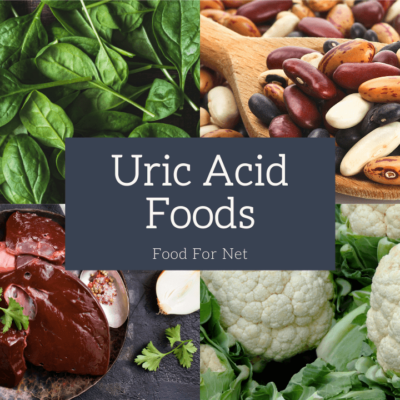
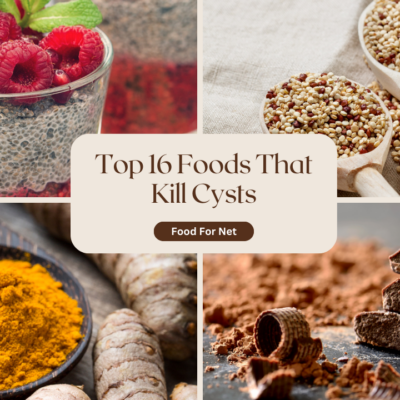
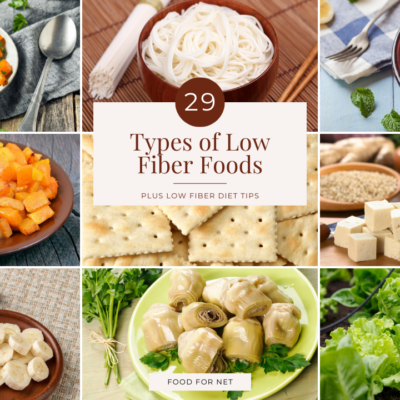
 11 Chinese Drinks That Are Interesting And Delicious
11 Chinese Drinks That Are Interesting And Delicious
Leave a Reply